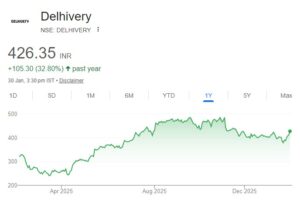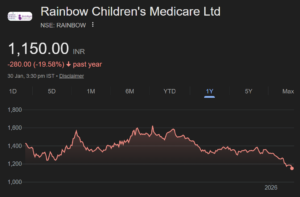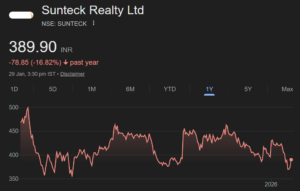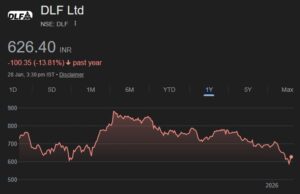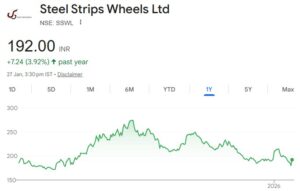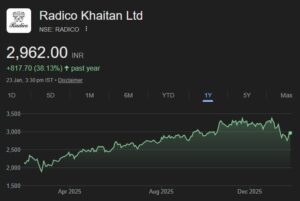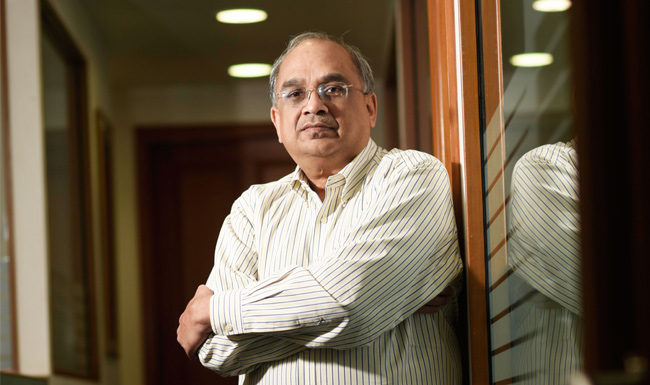
Don’t worry about COVID-19. It will be overcome
In his latest interview to Outlook Business, Bharat Shah advised investors not to obsess about Covid-19 and miss out on golden investing opportunities. He assured that it is a calamity which will soon pass.
“In all probability, COVID-19 is a transient problem. I believe while it is not a minor challenge, it is not an intractable or insurmountable problem. The world has seen such challenges in the past, and we have overcome them,” he said in a soothing manner.
“Technology-wise we are in far better shape than we have been anytime in the past. So, there are reasons to believe it will be short-lived,” he added.
He also pointed out that when estimating the overall value of a business, the near-term earnings are only a small part.
He, however, also advised that we have to keep red alert and constantly be on the watch for new facts and data.
Overall macroeconomic environment is optimistic
The doyen confirmed that he is very much optimistic about the overall macroeconomic environment.
He pointed out that the cost of capital has declined materially.
“Good corporates were borrowing at 12% a few years ago, and now that rate is below 7%. This is dramatic,” he said.
He also pointed out that crude oil prices are low and the government has taken the path of fiscal prudence.
“Another thing I am optimistic about is the reforms related to agriculture. APMC, which has lacked transparency and bred inefficiency, will be dismantled over a period of five years. Corporate farming may get a leg up, and these measures together will enhance farmer-level economics,” he said.
Market is neither ‘know-all’ nor ‘stupid’
Some investors have a tendency to pass verdicts on the behavior of the market such as “Markets are bizarre and crazy” or “They are driven by money flow“, etc.
Bharat Shah advised that we have to be circumspect before passing such verdicts on the market.
“When we make such judgments, we implicitly suggest that we know the whole truth and market does not know the reality,” he explained.
“But, I bow before the market. That is not to say I take the market’s view as gospel truth, but I do not assume that the market is foolish or stupid. That’s my guidepost,” he added.
“Price is only a dancing reflection of value. Even otherwise, we should not be dismissive of the market,” he cautioned.
Stocks where there is Margin of Safety
Bharat Shah pointed out that despite the steep run-up in the markets, there is still margin of safety (MoS) in some pockets and we should invest there.
He said that insurance stocks (Example: HDFC Life, SBI Life etc) have a Margin of Safety of about 20% to 40% now.
In Non-Bank financial sector stocks, the MoS is about 40-50% and there is still good value.
He stated that the other segments he finds attractive are pharma, healthcare and diagnostic chains, for which the MoS is around 10-15%.
“Here, the bigger attraction is the possibility of future compounding; ditto for chemicals, specialty chemicals, API and agrochem. These businesses are gainers because of the shift of production from China,” he said.
“Pharmaceuticals is a 1.7-trillion industry in India at the retail level, and exports constitutes another $20 billion, of which APIs comprise $5 billion. The domestic portion can safely grow anywhere from high single digit to double digit on a long-term basis, especially as health insurance penetration goes up and the entire chain can support faster growth,” he opined.
He indicated that he is gung-ho about APIs, which are the key building blocks for drugs.
“APIs have done well over the past couple of years because of China clampdown, and we should continue to build on that growth as there is a long runway ahead,” he said.
China+1 opportunity provides exciting opportunity for consumer durables companies like Dixon or Amber Enterprises
Bharat Shah opined that the recent initiatives of the Government such as the Production Linked Incentive Scheme (PLIS) will galvanize domestic production and break the shackles of China.
“China was becoming a concern for a number of global companies and this transition started in 2017 as buyers started developing alternatives,” he said.
“A key driver here could be the Production Linked Incentive Scheme (PLIS). The allocation for Electronic Manufacturing is 400 billion and the average incentive is about 5% of incremental output, which means an overall opportunity size of 8 trillion, which is significant,” he added.
“Some of the companies in the consumer durables space such as Dixon or Amber Enterprises could be exciting opportunity from this perspective,” he stated.
Reliance is emerging as a FAANG-type stock
Bharat Shah gave a clean chit to FAANG stocks (i.e. Facebook, Apple, Amazon, Netflix, Google etc) and stated that the exuberance surrounding them is not unjustified.
“They are not fantasy businesses. They make real profit and have serious cash flows. Plus, they are loaded with cash on the balance sheet,” he said.
He also pointed out that digitisation is real and its pace will only accelerate and this will propel these companies to dominate even further.
“The only digital play we have in India is Jio, which is a play on telecom, data and e-commerce. Jio is entering devices, which is a huge space in itself, and then it will be the first to offer 5G. It will also host a whole array of consumer businesses, which will flow through its e-commerce platform, including medical, entertainment and education. In e-commerce, Jio’s model involving the kirana may be unique,” he said.
Cement is a significant opportunity
Bharat Shah made it clear that he has confidence in cement stocks given that cement is a proxy for infrastructure growth in the Country.
“Cement is surely a significant opportunity, although there is no MoS. The industry has transformed itself. This is one industry where India is still world class and cost competitive. Companies have innovated and cost structure has improved dramatically,” he stated.
He pointed out that with scale, intelligent investments, well-managed costs and pricing discipline, some companies such as Shree Cement and Dalmia Bharat have done remarkably well.
“A cement company operating at a 30% return on capital employed (ROCE) is quite extraordinary,” he said.
“Growth in infrastructure and real estate, especially homes, will be a big driver for cement. This is an opportunity one can’t ignore,” he added.
He also pointed out that Cement is one of the three industries where the price of the product has remained the same for nearly 30 years and yet, companies have improved their return ratios.
Telecom and software services are the other two sectors where billing rates have more or less remained the same over the years, he said.
Lots of growth potential in autos and ancillary stocks
The veteran investor is also optimistic about two-wheeler and four-wheeler stocks and also their ancillary stocks.
“How competition will play out is clear (Hero Moto, Bajaj Auto and Honda will be the dominant players with Eicher Motors catering to the aspirational segment). Exports is a significant opportunity, where Bajaj has been successful, and now others are also headed the same way. The opportunity now lies in premiumisation,” he said.
“Maruti has remarkable offerings for the lower income bracket, but as demand moves up the escalation curve, we need to watch how they do,” he added.
“Looking at the overall growth potential in autos, I believe that some of the big and efficient auto ancillary players will be fairly attractive bets, too,” he said.
In Bank & NBFC stocks, retail delinquency is not as big a risk as is made out to be
Many investors are running scared of investing in Banking and NBFC stocks in the fear that the moratorium may lead to crippling NPAs.
However, Bharat Shah made it clear that he is not much worried about the situation.
“While the possibility of bad loans rising exists, I do not believe retail delinquency is as big a risk as is made out to be. That is because, Indian households are better behaved. Indian individuals are more cautious about borrowing because this is about traditional value, which is ingrained in us, that borrowing is not a good idea,” he explained.
However, he admitted that the same level of conservatism is not there amongst big businesses.
The veteran also gave a clean chit to Bajaj Finance, the glorious multibagger stock, and commended them for their credit appraisal systems and conservatism.
“A player such as Bajaj Finance, for example, has wisely invested in systems that maintain high level of credit diligence even while ensuring speedy delivery to the customer. For the past 10 years, they have been investing 3-6% of the interest income on building their data analytics and other systems,” he noted.
“Only time will tell how the loan losses will play out, but the important thing is that their balance sheet is water tight. In November 2019, they did a QIP of 85 billion and then they raised public deposit, which they have accelerated as it is a much more stable source of liquidity. As of June, they had liquidity of 230 billion,” he added.

